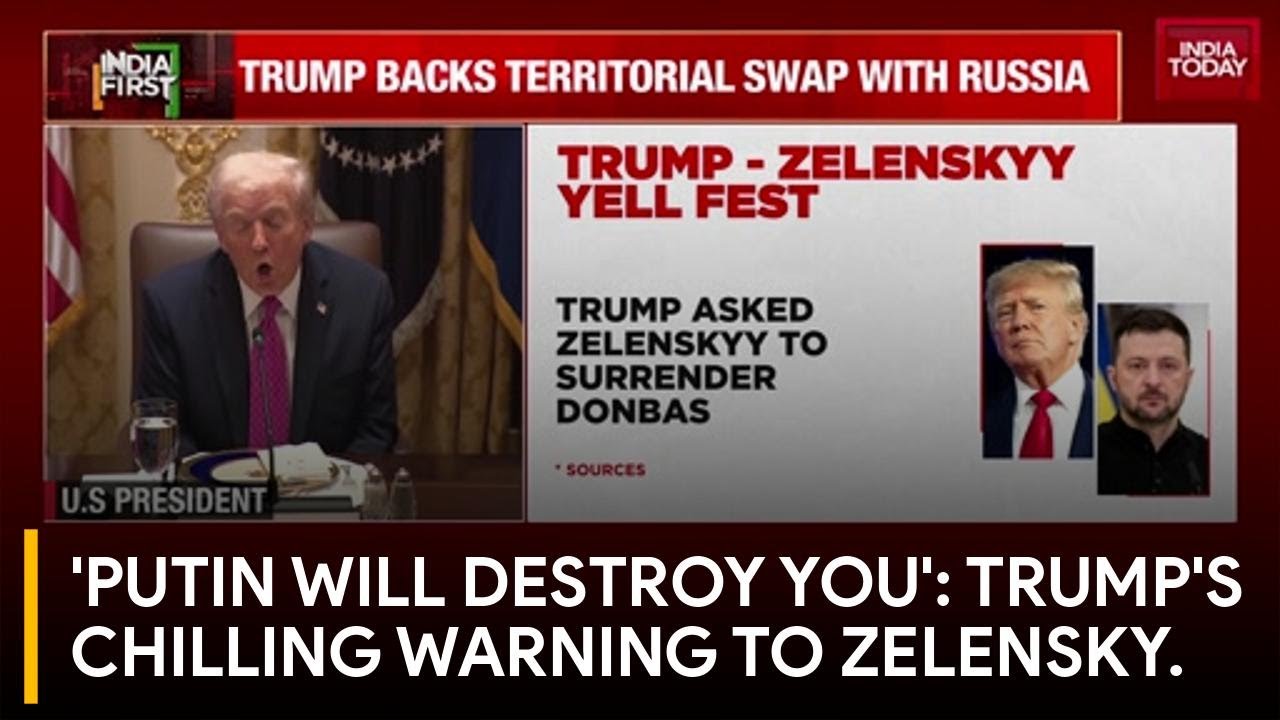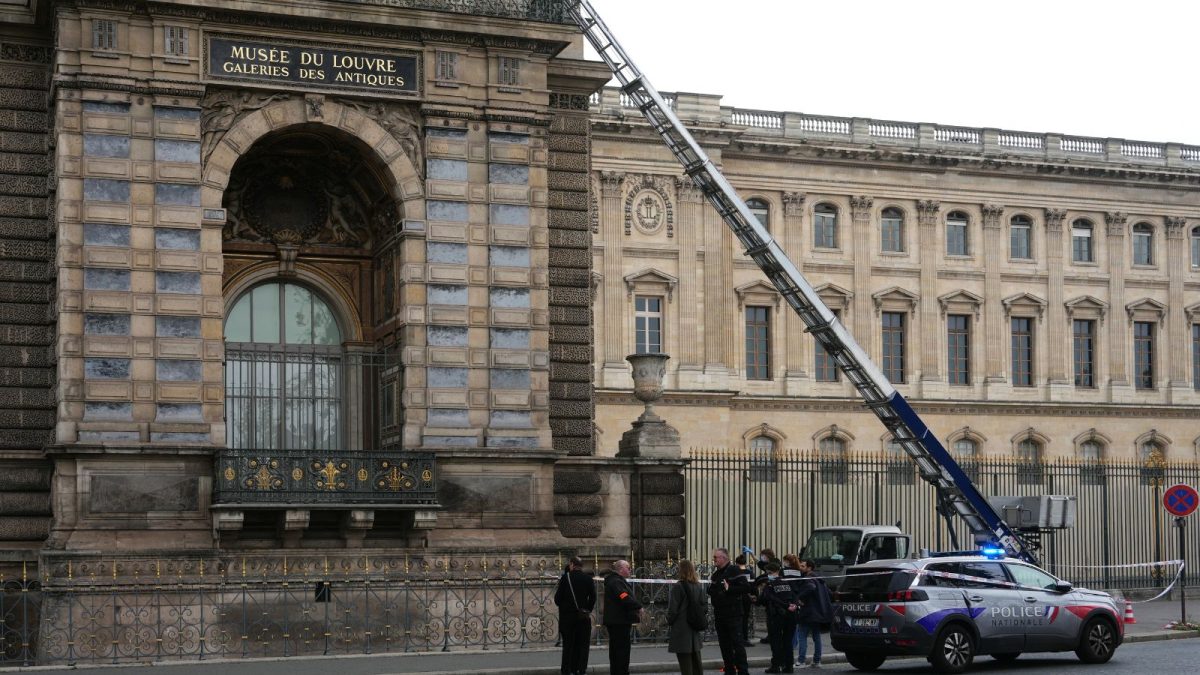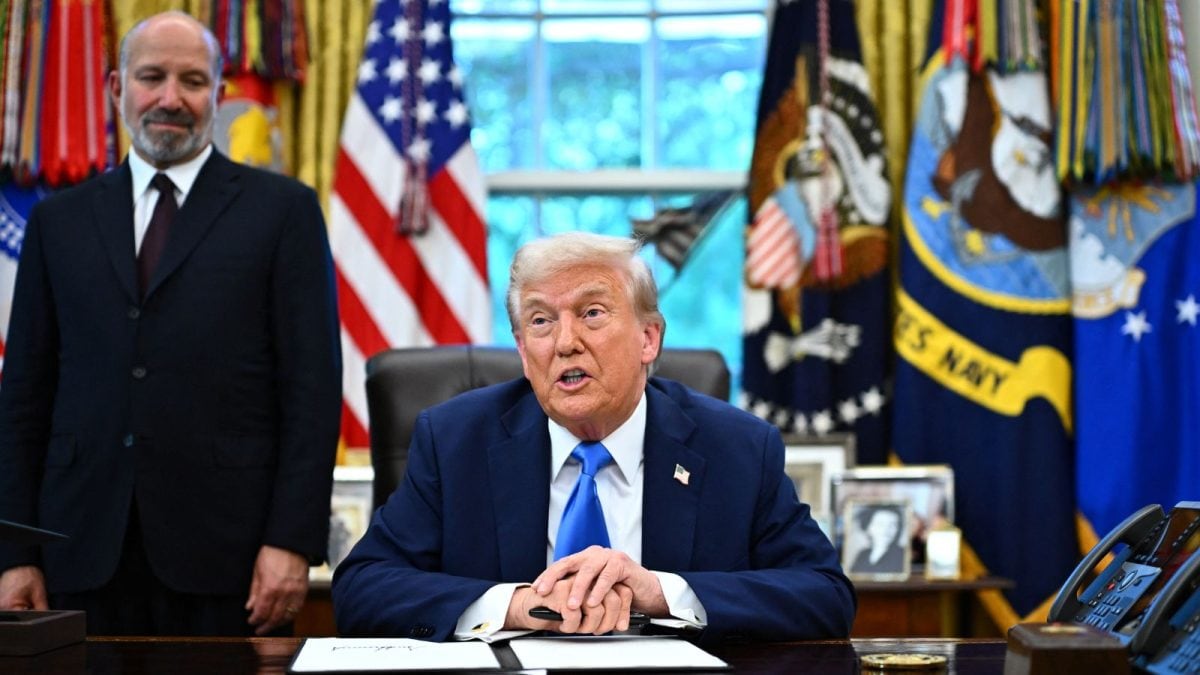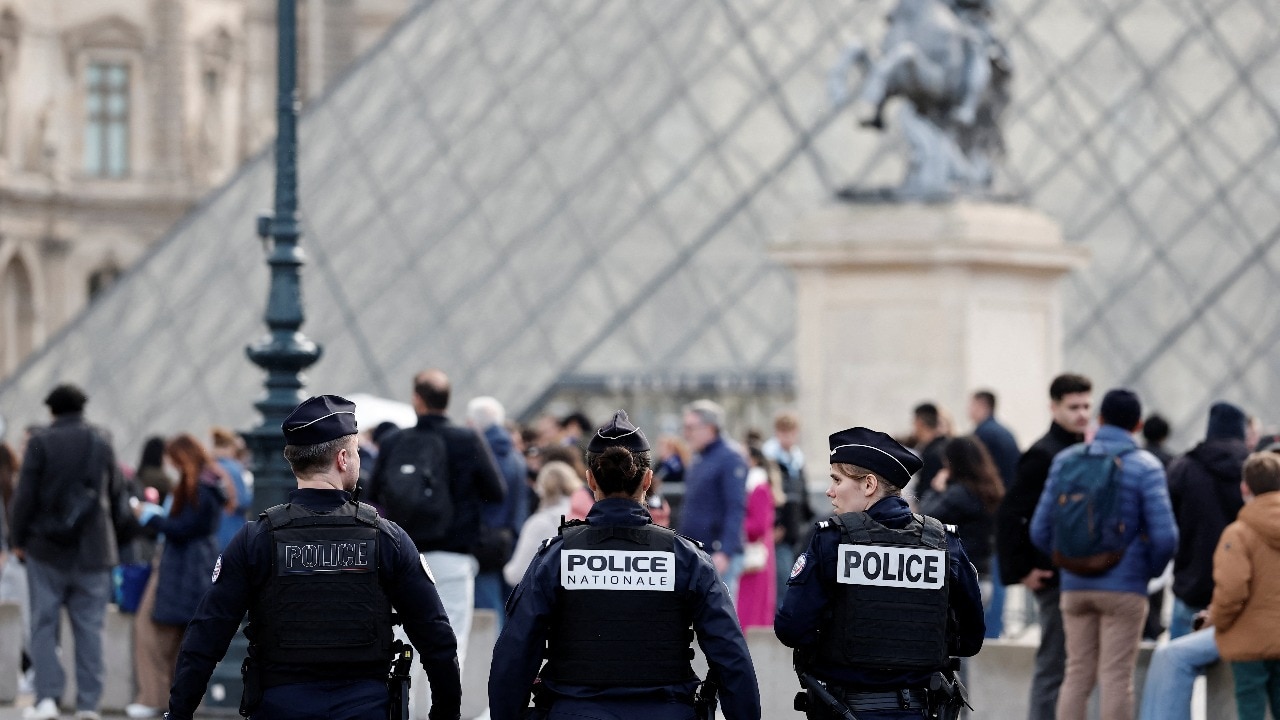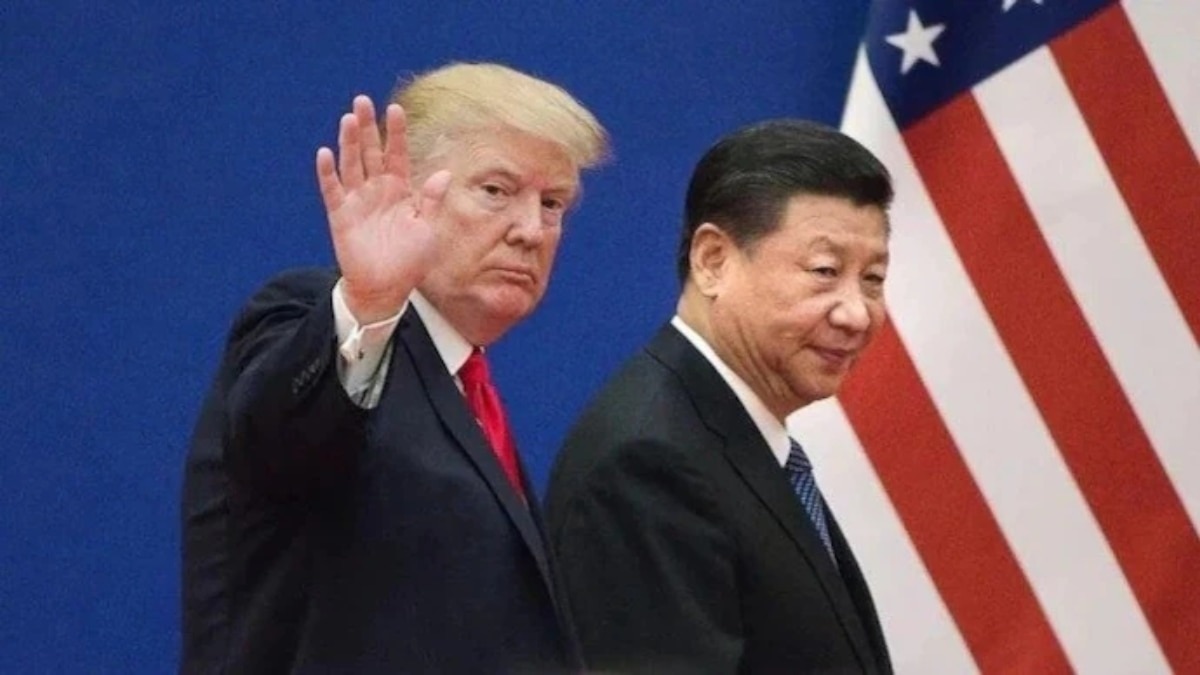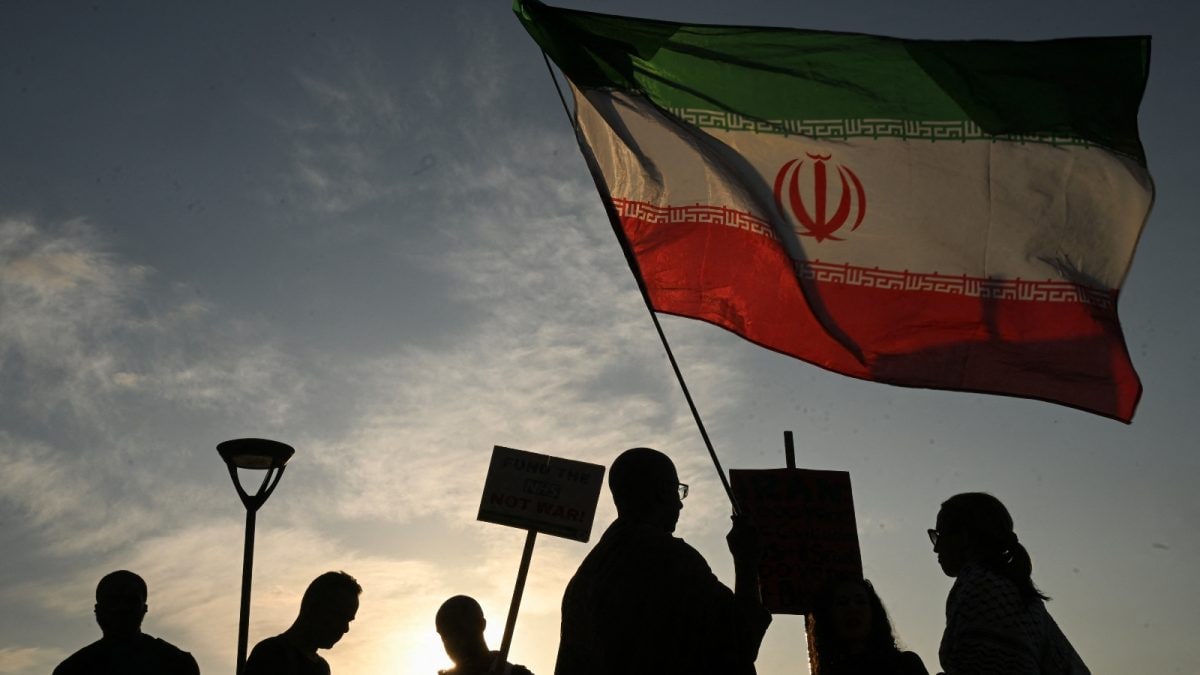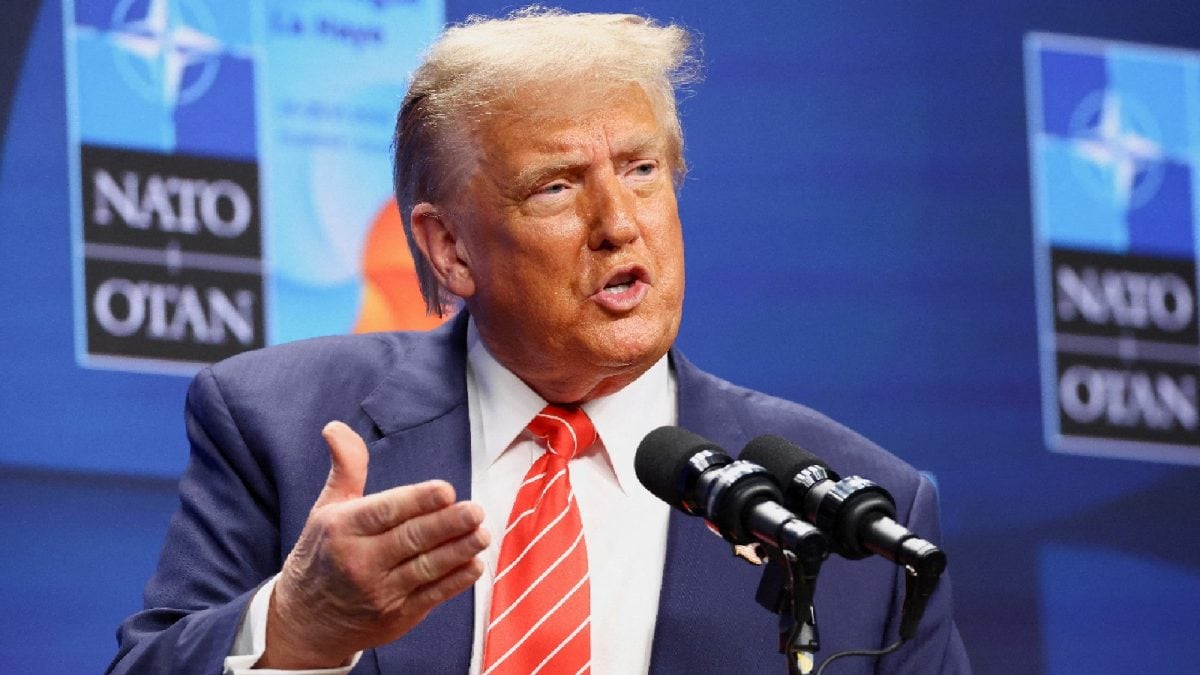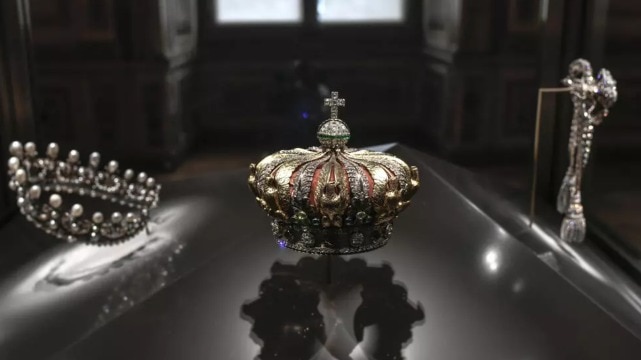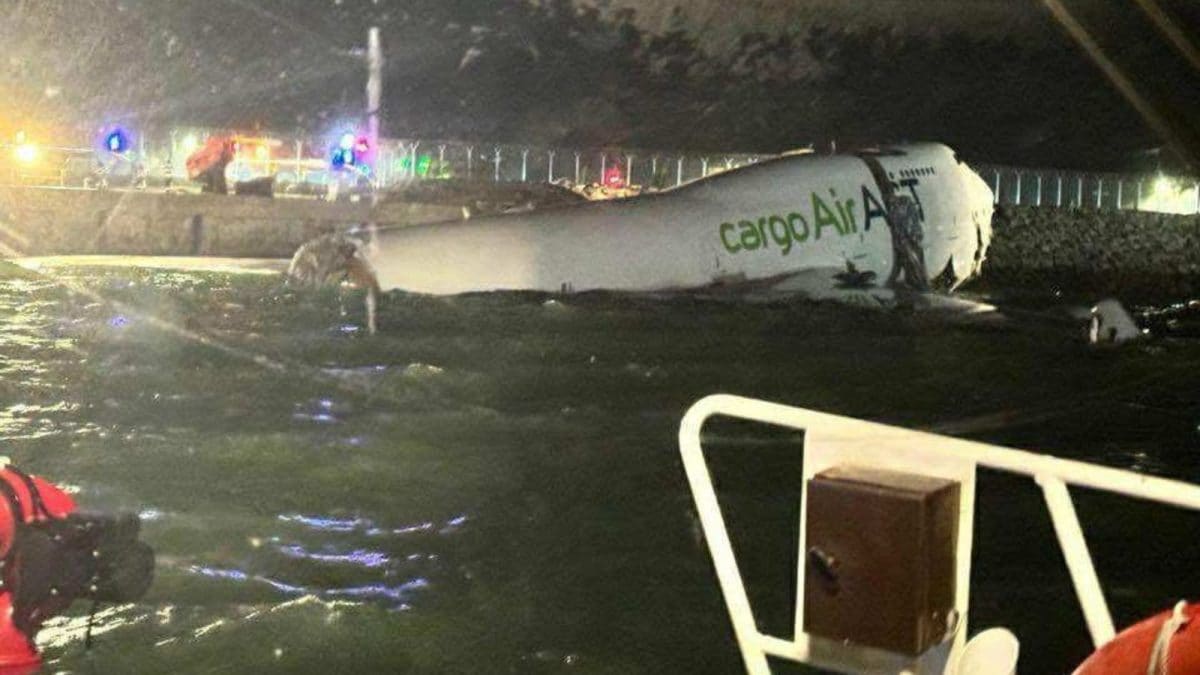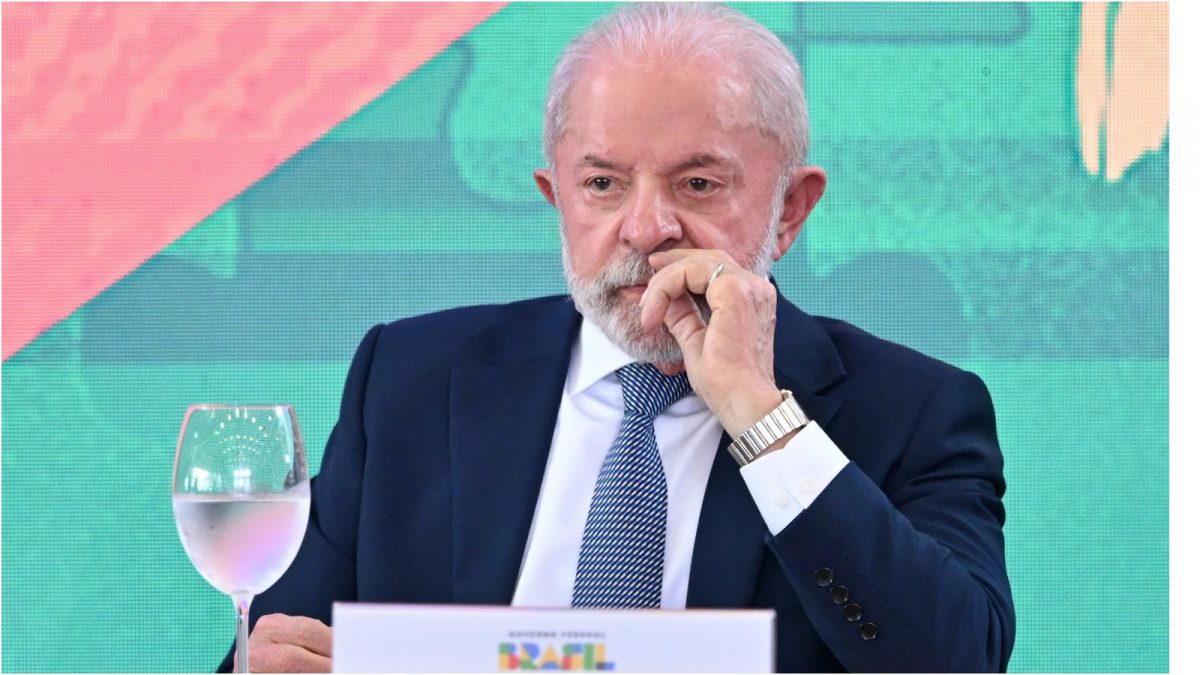At the heart of President Donald Trump's grand visit to the United Kingdom this week was the fact that Britain is entirely dependent on the US for its nuclear weapons inventory.

King Charles III (right) and US President Donald Trump review the guard of honour during the ceremonial welcome at Windsor Castle, Berkshire (Reuters photo)
The symbology of the photograph was apt. Donald Trump, President of the United States, ignoring protocol and striding ahead of British monarch King Charles III at a military parade held in his honour. It was just Trump being Trump, but it visibly demonstrated the dramatically changed equation between Washington and London, and the UK's increasingly subordinate role in the Anglo-American alliance.
The 13 colonies of the United States seceded from Great Britain after fighting a war of independence in 1776, during the reign of Charles' ancestor George III. George's troops ransacked and burned down the White House in 1814, but the power differential between the two countries that began by the end of the century only accelerated during the two World Wars and ended the British Empire.
Post Brexit, Britain is now a vassal dependent on the US. Trump became the first US President to be given two state visits, one of the largest military parades in recent history, and a royal welcome. The unsubtle massaging of Trump's ego is rooted in need. The UK needs more US investments, lower tariffs, and greater American involvement in Nato's support for Ukraine in its war against Russia. But the UK's Keir Starmer also needs American fighter jets and nuclear bombs.
A resurgent Russia under President Vladimir Putin, fighting Europe's longest conflict since the Second World War, has fuelled British insecurities. At the end of the recent Nato summit in June, Starmer announced that Britain would buy a squadron of nuclear-capable F-35A fighter bombers from the US.
The 12 fighters will carry B61 thermonuclear bombs which have a maximum blast yield of 340 kilotons each and which can be used in continental wars of the kind being waged in Europe. (The F35As were certified as nuclear capable as recently as October 2023, the first such American fifth-generation fighters to get the classification). Experts say the F35s and the B61 warheads will be based at the Royal Air Force's Lakenheath airbase, which has a special weapons storage site.
At the banquet thrown in his honour at Windsor Castle on September 18, Trump hailed the special relationship between the two countries: "The word special does not begin to do it justice".
UK'S RELIANCE ON US FOR NUKES
Special weapons are at the heart of this special relationship. It dates back to the Cold War, which saw Britain become an unsinkable Nato aircraft carrier off the coast of Europe and a base for American nuclear weapons-carrying bombers and strategic submarines to deter the Soviet Union.
It was during this period that the two countries evolved a unique arrangement -- US-built Trident nuclear missiles being carried on British ballistic missile submarines (SSBNs). The agreement to purchase Trident 1 nuclear missiles was formalised under Prime Minister Margaret Thatcher in 1980, with the first missiles being delivered in 1982. The UK later upgraded to the Trident II (D5) missile system in 1990 after an agreement in 1987.
The US not just supplies Britain with nuclear-tipped missiles, each with a range of up to 12,000 km with multiple W76 thermonuclear warheads, but also maintains the missiles. It is the world's only such arrangement between two nuclear weapons states (though China did supply Pakistan with highly enriched uranium and nuclear weapon designs in the early 1980s).
When the American jets and the weapons arrive in the UK inventory a few years from now, they will be the first British air-launched nuclear weapons in decades. The UK retired its bomber fleet in the 1980s, leaving the Tridents on its four Vanguard class submarines as its only nuclear vector.
The Trump administration's volatile approach to its allies this year had forced the UK to reconsider its reliance on the US to maintain its nuclear deterrent. Strategic analysts had even raised the prospect of buying nuclear weapons from France (which has wisely chosen to maintain an independent nuclear deterrent). But with Trump reaffirming the special relationship, these doubts have now been put to rest, at least in the short term.
- Ends
Published By:
Dev Goswami
Published On:
Sep 18, 2025

 1 month ago
1 month ago

